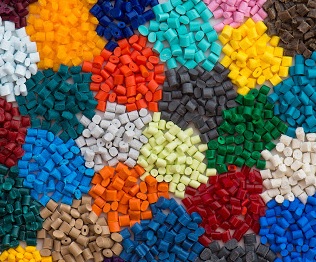The global sustainable masterbatch market accounted for $538.8 million in 2019 and is expected to reach $934.8 million by 2025, according to a report by Reportlinker. The market is anticipated to grow at a CAGR of 9.62% during the forecast period 2020-2025. The market growth is mainly attributed to the rising number of applications for sustainable masterbatch, increasing adoption and awareness rates, and heavy investments made in the research and development of sustainable solutions in the masterbatch industry and its development. In addition, governments are coming up with policies and laws to encourage the adoption of sustainable masterbatch, which is expected to drive market growth during the forecast period, according to the report.
The global sustainable masterbatch market’s growth is mainly attributed due to the increased demand for bioplastics, biodegradable plastics and more sustainable solutions in multiple application areas such as medical, packaging, agriculture, and automotive. Additionally, the implementation of government laws and regulations across the globe that limits the production of conventional masterbatches by encouraging the production of bioplastics has also been a major factor in driving the demand for sustainable masterbatches.
Moreover, increasing consumer awareness has resulted in increased demand for sustainable solutions in different domains, thereby increasing the applications of bio-based plastics and other sustainable solutions in the masterbatch industry. The increasing emphasis on advanced and innovative technologies and products in the sustainable masterbatch industry creates several opportunities for the manufacturers to expand their revenue stream and product portfolios.

The report further indicated that COVID-19 has hit the sustainable masterbatch industry hard in terms of raw-material and additives availability, transportation, and in maintaining a smooth supply-demand. The unavailability of sufficient additives has created an imbalance in supply for medium-scale manufacturers as well as small scale and medium scale end users.
Earlier, the applications of sustainable masterbatch were limited to packaging and medical industries, but with the innovation and development of new bioplastics such as PBAT, the capabilities of the sustainable masterbatch have been increasing. The sustainable masterbatches manufactured currently can withstand significantly higher temperatures as compared to their predecessors from over three to four years. Now, sustainable masterbatches are being used in agricultural and automotive industries as well.
Continuous product expansions (launches and enhancements), partnerships, and collaborations are some of the business strategies executed in the sustainable masterbatch market. Several companies, including BASF SE, Avient Corporation, Ampacet Corporation, Cabot Corporation and Americhem, Inc., have been involved in product launches and enhancements. Sukano AG and Akro Plastics GmbH are continuously working on expanding their product portfolios.














